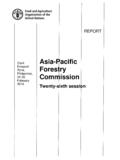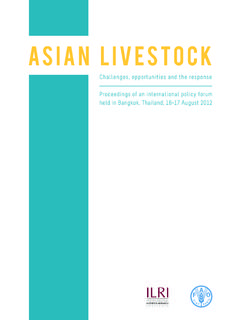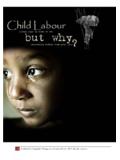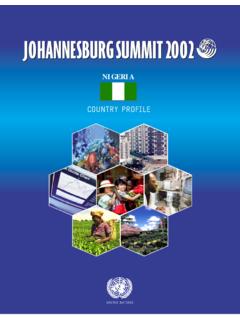Transcription of FOOD SAFETY STANDARDS IN ASEAN COUNTRIES
1 1 Newsletter of food SAFETY STANDARDS IN ASEAN COUNTRIES Newsletter of the Project Support to Capacity Building and Implementation of International food SAFETY STANDARDS in ASEAN COUNTRIES (GCP/RAS/280/JPN) Volume 1 Issue 1 FAO Regional Office for Asia and the Pacific (RAP), Bangkok November 2012 From Project Team Welcome to the first edition of the newsletter of the Japanese funded FAO regional project Support to Capacity Building and Implementation of International food SAFETY STANDARDS in ASEAN COUNTRIES (GCP/RAS/280/JPN). This project was launched on December 2011 as a five-year project to aim at strengthening the capacities of ASEAN COUNTRIES in contributing to Codex STANDARDS -setting and implementing the adopted Codex STANDARDS . With a grant of USD 2 297 075 from the Government of Japan (the Ministry of Agriculture, Forestry and Fisheries), the project is being implemented by the food and Agriculture Organization of the United Nations Regional Office for Asia and the Pacific (FAORAP).
2 The project outcomes include Increased contribution of ASEAN COUNTRIES in Codex Activities; Refined implementation of Codex STANDARDS in ASEAN COUNTRIES ; and Improving ability for quality assurance of data. The project has already established national focal points of the project in the ten ASEAN COUNTRIES and collated information on the status of implementing international STANDARDS at national level based on inputs received from the COUNTRIES . In addition, the inception workshop of the project was held during 17-19 September 2012 in Bangkok, Thailand wherein some subjects/ areas were discussed and identified for trainings, workshops, case studies and guidance documents based on inputs from participants (Summary of the workshop is given below). Through this newsletters and the recently launched project website, it is proposed to share recent activities of the project as well as the important information relating to food SAFETY with stakeholders.
3 For achieving project objectives, communication and visibility are a vital part of the project. A full range of tools such as gathering of information, publication and dissemination of reports and documents to strengthen overall programme development have been envisaged. 2 The project team expresses its sincere gratitude to Mr. Hiroyuki Konuma, Assistant Director General of FAO and regional representative of Asia and the Pacific for his kind encouragement, and a special thanks to Japanese Government for generous funding to the project and to national focal points of ASEAN COUNTRIES for coordinating the activities on behalf of their COUNTRIES . Project Team Report of recent events The Inception workshop Principles and further activities for Codex implementation The workshop was held during 17 to 19, September 2012, in Bangkok which had 44 participants (including 11 observers) representing mostly the Ministry of Health and Ministry of Agriculture in nine ASEAN COUNTRIES , viz.
4 , Brunei Darussalam, Cambodia, Indonesia, Lao PDR, Malaysia, Myanmar, Philippines, Thailand, and Vietnam . The objectives of the workshop were as follows; i) To enhance understanding of implication of the SPS agreement, its relationship with International STANDARDS and the current activities in the area of Codex standard setting; ii) To enhance understanding on International food SAFETY STANDARDS and their implementation; iii) To share information on national scenarios in relation to implementing International food SAFETY STANDARDS ; and iv) To discuss and identify capacity building needs and priorities on subjects for workshops, training courses, case studies and guidance documents under the project. Opening Session The welcome address was given by Mr. Tetsuya Murakami, First Secretary, Embassy of Japan in Thailand, and Mr. Sakchai Sriboonsue, Secretary General of the National Bureau of Agricultural Commodity and food STANDARDS (ACFS), Bangkok.
5 The inaugural address was delivered by Mr. Hiroyuki Konuma, Assistant Director-General and FAO Regional Representative for Asia and the Pacific, Bangkok. Mr. Atsuhiro Meno, the Project coordinator, explained the project objectives, benefits, outputs and outcomes, various activities relating to the questionnaire and discussion with national focal points. He explained briefly objectives of the inception workshop. 3 Implication of SPS/TBT Agreement and current activities of International agreement and standard setting Overview of the SPS/TBT Agreement and recent developments Ms. Marieme Fall, Counselor, Agriculture and Commodities Division, WTO, Geneva explained the WTO structure, the use of non-tariff measures, the objectives, coverage and current issues of SPS and TBT agreements. The various provisions of the SPS agreement, the role of Codex in the WTO as a food SAFETY standard setting organizations were also presented.
6 She explained specific trade concerns relating to animal health and food SAFETY . She highlighted specific trade concerns with practical examples pertaining to ASEAN COUNTRIES , the food SAFETY notifications, the private STANDARDS besides briefly touching the various provisions of TBT agreements. She also showed STANDARDS Trade and Development Facility website along with its contents. The SPS Agreement and International STANDARDS Ms. Shashi Sareen, Senior food SAFETY and Nutrition Officer, FAO Regional Office for Asia and the Pacific, Bangkok, brought out the link between the SPS Agreement and Codex STANDARDS . She described the current activities of International Standard setting, Codex standard setting procedures and the status of various FAO projects in the Asian region. She referred to the various Codex documents, and the principles that set out policies and guidelines for their interpretation.
7 She dealt at length with the current focus in Codex Alimentarius Commission including its draft strategic plan for 2014-2019, the proposed golden jubilee of Codex during 2013. Besides, she highlighted the various training programmes carried out, guidance documents and tools developed, information exchange mechanisms, various regional and national projects and forthcoming training programmes and workshops and seminars. ASEAN s approach for 1) applying scientific principle and risk analysis for food SAFETY STANDARDS setting 2) contribution to Codex standard setting process 3)implementing Codex STANDARDS Mr. Pisan Pongsapitch, Director, Office of Standard Development, National Bureau of Agricultural Commodity and food STANDARDS , Bangkok in his capacity as the Chair of the ASEAN Task Force on Codex (ATFC), presented the role of ATFC as a forum to discuss Codex issues of interest to ASEAN .
8 He referred to the ASEAN efforts on harmonization on food SAFETY STANDARDS through the working groups of the ASEAN Ministerial meeting on Agriculture and Forestry (AMAF),and so on. In addition, he also enunciated the principles of harmonization of ASEAN MRLs. His talk covered the ASEAN STANDARDS and Conformance Framework and its technical infrastructure, activities of the prepared food products working group, food testing reference laboratories and the task force on Codex. Japanese approach for applying scientific principles and risk analysis relating to food SAFETY and the contribution to the Codex standard setting process Mr. Tetsuo Urushiyama, Scientific Adviser for food SAFETY and Consumer Policy Division, Ministry of Agriculture, Forestry and Fisheries, Tokyo, described the process of enactment of food Law in 2003, the implementation of the risk assessment process and the establishment of food SAFETY commission to conduct risk management by Government.
9 He covered the objectives and content of Standard 4 Operating Procedures for conducting food SAFETY management, provided examples of priority list of chemical and microbiological hazards, traced development of guidelines to risk managers and introduced the concept and policy for promoting regulatory science. He explained the Japan s contributions to standard setting process citing the Case study of Maximum Level and Code of Practice on 3-Monochloropropane-1,2-Diol(3-MCPD) in soy sauce. He also cited the strategy of MAFF to facilitate discussions through providing scientific data and information for filling the gaps in accordance with the Codex principles, cooperating with industries, and submitting written comments to Codex. An introduction of current important topics food recall and traceability Ms. Usa Bamrungbhuet, Senior STANDARDS Officer, Office of Standard, THAILAND made her presentation on the subject Establishment of Codex STANDARDS relevant to food Recall and Traceability.
10 She dealt at length on the various STANDARDS related to food recall, traceability and product tracing, food SAFETY emergency plan, the various principles, need for further guidance on traceability/product tracing. The benefits of traceability and product tracing were elucidated by her. Dr. Ponprome Chairidchai, Director of Information and Technology Center, Bangkok gave his talk on Implementation of Traceability in Thailand . He described the facilities developed in Thailand by illustrating the Agriculture Commodity food STANDARDS traceability project, highlighting the regulations including Agriculture STANDARDS Act. Other aspects presented by him included the record system, use of data input software, bar code, RFID and so on. As part of the regional collaboration, the ADB Initiative on ASEAN Traceability system with its various steps such as promotion for wider adoption, standardization of traceability data, standardization of information transfer, standard coding system and the regulatory system was explained.



